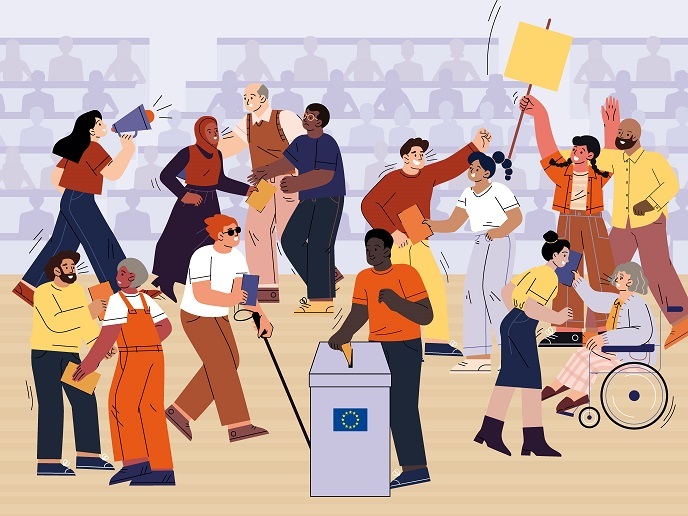New tools and insights to better connect citizens with democracy
The 2024 European Parliament election is scheduled to be held from 6 to 9 June. It will be the 10th parliamentary election since the first direct elections in 1979, and the first since the departure of the United Kingdom from the Union. It arrives at a time when, more than ever, the strength of democratic systems operating in Europe is being called into question, and solutions are urgently sought. Europe is facing a rash of threats to its democratic ideals. Conflict, climate change, the COVID-19 pandemic, and Russia’s invasion of Ukraine have all brought uncertainty to the continent. In response to these issues, populism is in resurgence, encouraging citizens to turn away from the pan-European ideals and liberal democracy, to instead focus on exclusionary identities and self-interest. Consequently, policies that limit the rights and freedoms of women, minorities, LGBTIQ citizens and immigrants are on the rise. There is an urgent need to examine the practices of democracy and identify how they can be improved. Horizon-funded research is helping to deliver the answers. Trust is an essential component of democracy. Without it, citizens cannot engage meaningfully in the democratic process, and governments and regulatory bodies lack moral authority. EnTrust, PERITIA and TiGRE all explore different aspects of trust in governance. They suggest that encouraging a healthy scepticism of governing bodies is a key foundation for a responsible relationship between citizen and state. Growing citizen participation in policymaking is a crucial step for a more engaged and informed electorate. EUARENAS, EUCOMMEET and DEMOTEC all explore aspects of deliberative and participatory democracy. They offer new tools and methods for increasing democratic involvement, from participatory budgets to deliberative spaces for citizens. Taking this a step further, the ISEED project uses conceptual and empirical means to deliver a guide to best practices for citizen engagement. The media also plays a role in the relationship between governments and citizens. EUMEPLAT and MEDIADELCOM both seek to quantify the role of the media in helping – or harming – public discourse of the issues that matter to citizens. The RADICALISATION project investigates how extremists use disinformation campaigns to radicalise and recruit new members, offering strategies to prevent future conflicts. EUGenDem examines the role of parliamentary political groups in advancing gender equality, while in the context of rising populism, the LIDD project examines the double-edged sword of direct democracy, which offers citizens a straight path to policymaking, but can circumnavigate protections and due process. ELECTRUST reviews the risks and benefits offered by internet-voting systems. And POLEMIC questions whether appealing to voters’ negative emotions is really on the rise – or even a successful strategy. Finally, work carried out by FASDEM examines the trajectories of states, and highlights that the transition to liberal democracy is not a foregone conclusion, nor always a stable end point. It cautions us not to take what we have for granted; to survive, democracy must be defended.



